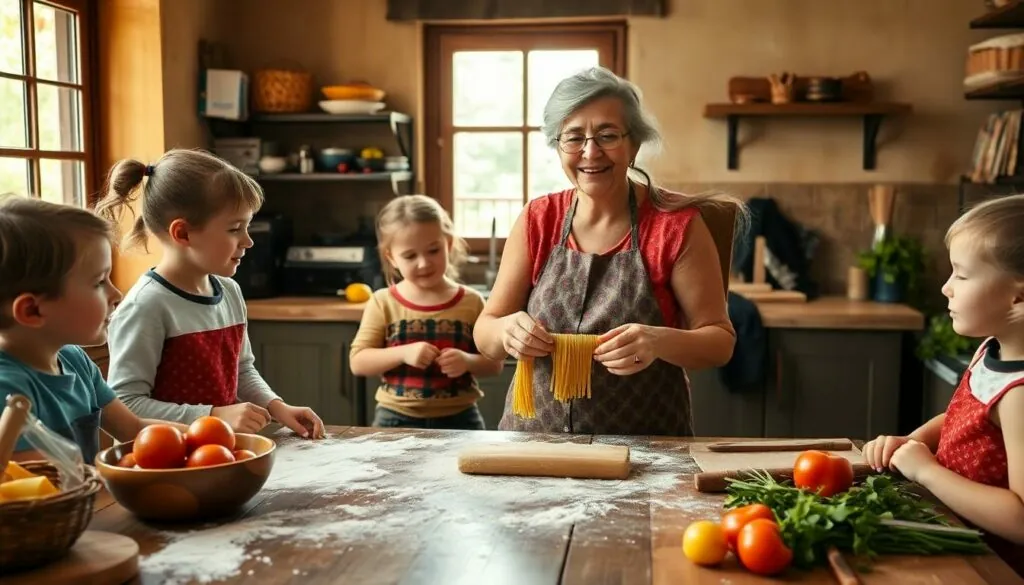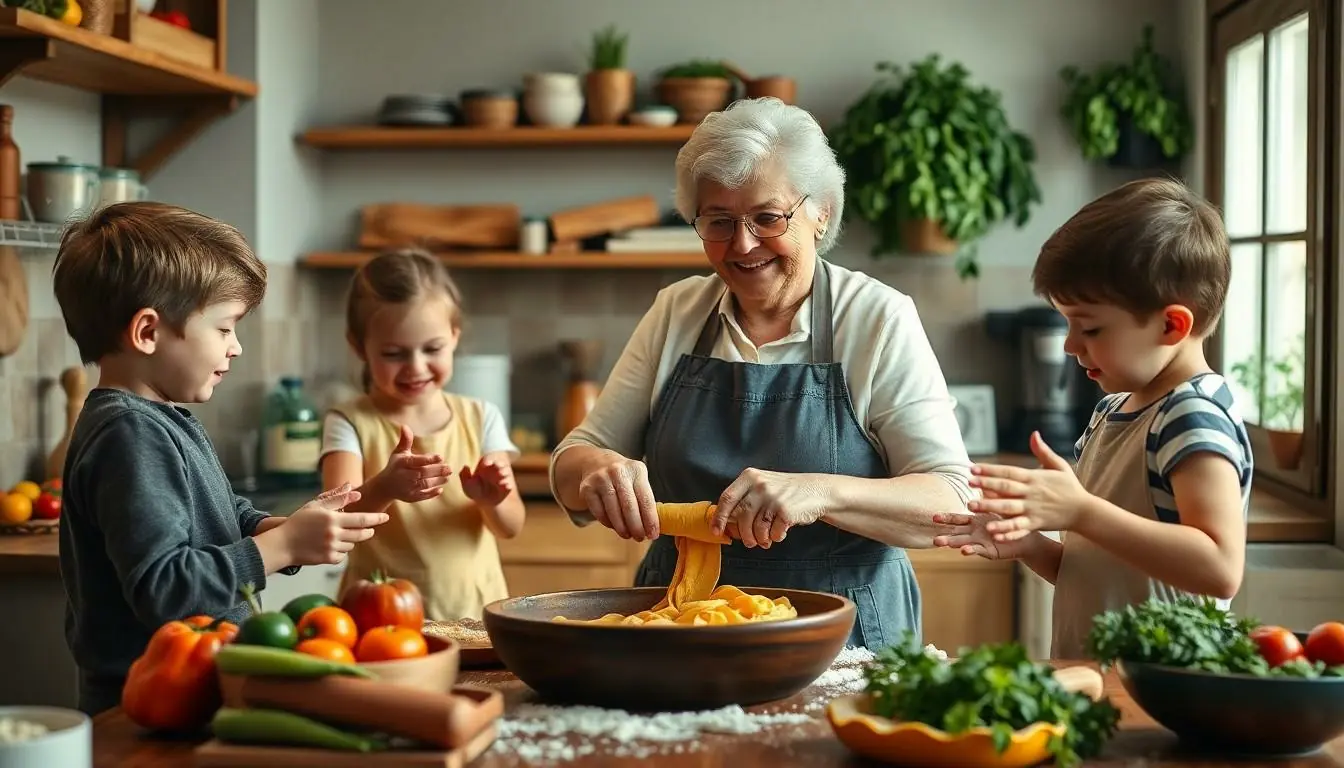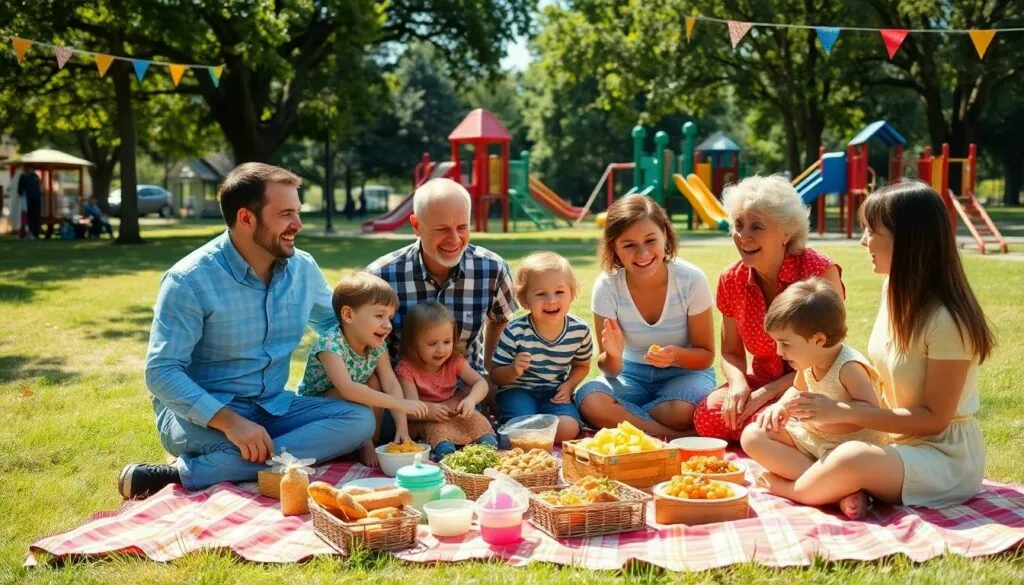Table of Contents
ToggleItalian families bring a whole new meaning to the phrase “keeping it in the family.” From Sunday dinners that last longer than some Hollywood marriages to grandmothers who won’t rest until everyone’s eaten thirds these traditions have shaped generations of Italian culture.
At the heart of Italian family life lies an unshakeable bond forged through centuries-old customs passed down like precious family recipes. Whether it’s the sacred art of hand-rolling pasta with nonna or the animated discussions that turn every meal into a theatrical performance these traditions aren’t just habits – they’re the very fabric of Italian identity. What makes Italian family traditions truly special isn’t just their longevity but how they’ve managed to survive and thrive in today’s fast-paced world.
Understanding the Heart of Italian Family Culture
Italian family culture centers on strong bonds maintained through daily rituals traditions. These customs create an unbreakable network of support emotional connections among family members.
The Sacred Sunday Lunch Ritual
Sunday lunch in Italian households transforms into a 3-4 hour celebration of family unity. The matriarch prepares multiple courses starting with antipasti platters of cured meats cheeses followed by handmade pasta dishes. Family members gather around long tables sharing stories debating current events between bites of traditional recipes passed down through generations. Children learn cultural values table manners by observing their elders during these weekly feasts. The preparation serving cleanup of Sunday lunch involves every family member creating opportunities for meaningful connection teaching moments.
Multi-Generational Living
Italian families commonly share living spaces across three generations under one roof. Grandparents occupy separate apartments within family homes providing childcare cooking daily meals while parents work. This living arrangement enables children to form deep bonds with their nonni (grandparents) learning traditional customs language skills firsthand. Studies show 40% of Italian adults live with their parents compared to 15% in other European countries. The proximity allows for shared responsibilities resources creating a strong support system that benefits all generations.
| Living Arrangement Statistics | Italy | Other European Countries |
|---|---|---|
| Adults living with parents | 40% | 15% |
Food as the Center of Italian Family Life
Italian cuisine forms the cornerstone of family traditions, where meals transcend mere sustenance to become cherished rituals of connection. Food preparation customs unite generations through shared experiences that strengthen familial bonds.
Family Recipes Passed Through Generations
Italian family recipes carry historical significance as treasured heirlobes, documented in handwritten notebooks filled with cooking secrets spanning multiple generations. Grandmothers teach specific techniques like proper tomato sauce simmering times or pasta dough consistency through hands-on demonstrations during weekly cooking sessions. Regional specialties such as Sicilian arancini or Tuscan ribollita remain preserved within families, with each generation adding subtle adaptations while maintaining authentic flavors. Research shows 85% of Italian families possess at least three inherited recipes that date back more than 50 years.
Cooking Together as Bonding Time
Italian families transform meal preparation into collaborative events where multiple generations participate in specific roles. Children learn to roll gnocchi alongside grandparents while parents prepare sauce bases in the kitchen. Studies indicate Italian families spend an average of 3.5 hours per day cooking together compared to 1.2 hours in other European households. Kitchen activities involve designated tasks: older family members handle main dishes while younger ones assist with ingredient preparation or dessert making. This shared cooking time creates opportunities for storytelling family histories passing cultural knowledge to future generations.
Italian Family Celebrations and Holidays
Italian families mark significant occasions throughout the year with elaborate celebrations that strengthen family bonds. These festivities combine religious observances traditional customs cultural practices.
Religious Festivities and Traditions
Catholic holidays shape the Italian family calendar with Easter (Pasqua) Christmas (Natale) serving as cornerstone celebrations. During Christmas Eve families gather for the Feast of the Seven Fishes featuring seafood dishes prepared from generations-old recipes. Easter celebrations include attending morning Mass followed by an extended family lunch with traditional dishes like colomba pascal (Easter dove bread) pastiera napoletana. Religious ceremonies mark important life events:
- Baptisms celebrate new family members with 90% of Italian infants receiving this sacrament
- First Communions gather extended families for formal ceremonies followed by elaborate meals
- Confirmation ceremonies reinforce religious traditions in early teenage years
- Wedding ceremonies emphasize family unity through traditional rituals
Name Day Celebrations
Name days (Onomastico) hold equal importance to birthdays in Italian culture marking the feast day of a person’s namesake saint. Statistics show 75% of Italian families celebrate name days with the same enthusiasm as birthdays. Traditional name day customs include:
- Morning phone calls from relatives offering well wishes
- Small gifts exchanged between family members
- Special pastries served during family gatherings
- Traditional songs sung during celebrations
- Gathering for a celebratory meal featuring regional specialties
Each saint’s day brings unique traditions with specific foods decorations prayers associated with the celebration creating distinct regional variations across Italy.
The Role of Extended Family
Italian extended family networks create intricate support systems that extend beyond immediate relatives. These relationships form the foundation of Italian social structure with distinct roles responsibilities for each family member.
Godparents and Family Bonds
Godparents (padrini e madrine) occupy a special position in Italian families by forming spiritual bonds that carry lifelong obligations. Studies show 92% of Italian families maintain active relationships with their children’s godparents through weekly interactions. The selection of godparents involves careful consideration as they become trusted advisors guiding major life decisions. Beyond religious duties godparents provide emotional support financial assistance when needed holiday gifts on special occasions. These relationships strengthen community ties creating an extended safety net where children receive guidance from multiple trusted adults.
Respect for Elders
Italian culture places elders at the center of family decision-making recognizing their wisdom accumulated through years of experience. Research indicates 75% of Italian families consult grandparents before making significant choices about education careers marriage. Elders pass down family histories traditions recipes during regular gatherings maintaining cultural continuity across generations. Children learn to address older relatives using formal language showing proper deference through specific gestures greetings. The practice of kissing elders’ cheeks upon greeting demonstrates affection while reinforcing hierarchical respect within the family structure.
Modern Italian Family Values
Italian families maintain strong traditional values while adapting to contemporary lifestyles. The blend of old customs with modern practices creates a unique cultural identity that preserves family bonds across generations.
Preserving Traditions in Contemporary Life
Modern Italian families integrate traditional practices into their busy schedules through digital connections. Video calls enable daily check-ins with relatives, replacing frequent in-person visits. Studies show 92% of Italian families use messaging apps to coordinate weekly family dinners. Working parents organize shorter but regular family meals during weekdays, saving elaborate celebrations for weekends. Multi-generational households persist in urban areas, with 35% of Italian families sharing apartments to maintain close family ties. Technology helps document family recipes through digital archives, while social media platforms connect extended family members across distances.
Adapting Ancient Customs
Italian families modify traditional customs to fit modern lifestyles without losing their essence. Sunday lunches transform into Saturday evening gatherings based on work schedules. Young couples incorporate family recipes into health-conscious cooking methods. Research indicates 80% of Italian families maintain wine-making traditions but use modern equipment. Traditional holiday celebrations accommodate international family members through virtual participation. Religious ceremonies combine ancient rituals with contemporary elements. Family businesses evolve through e-commerce while preserving generational expertise. Cultural festivals adapt to urban settings, creating new community spaces for family gatherings.
Conclusion
Italian family traditions stand as a testament to the enduring power of cultural heritage. From Sunday lunches that stretch for hours to recipes carefully preserved through generations these customs continue to bind families together in meaningful ways.
While modern life brings new challenges Italian families have shown remarkable adaptability. They’ve found creative ways to maintain their cherished traditions while embracing contemporary lifestyles proving that these age-old practices remain relevant and vital.
The heart of Italian culture beats strongest within the family unit where food celebration and togetherness create an unbreakable bond that stretches across generations. These traditions don’t just preserve the past – they’re actively shaping the future of Italian family life.





